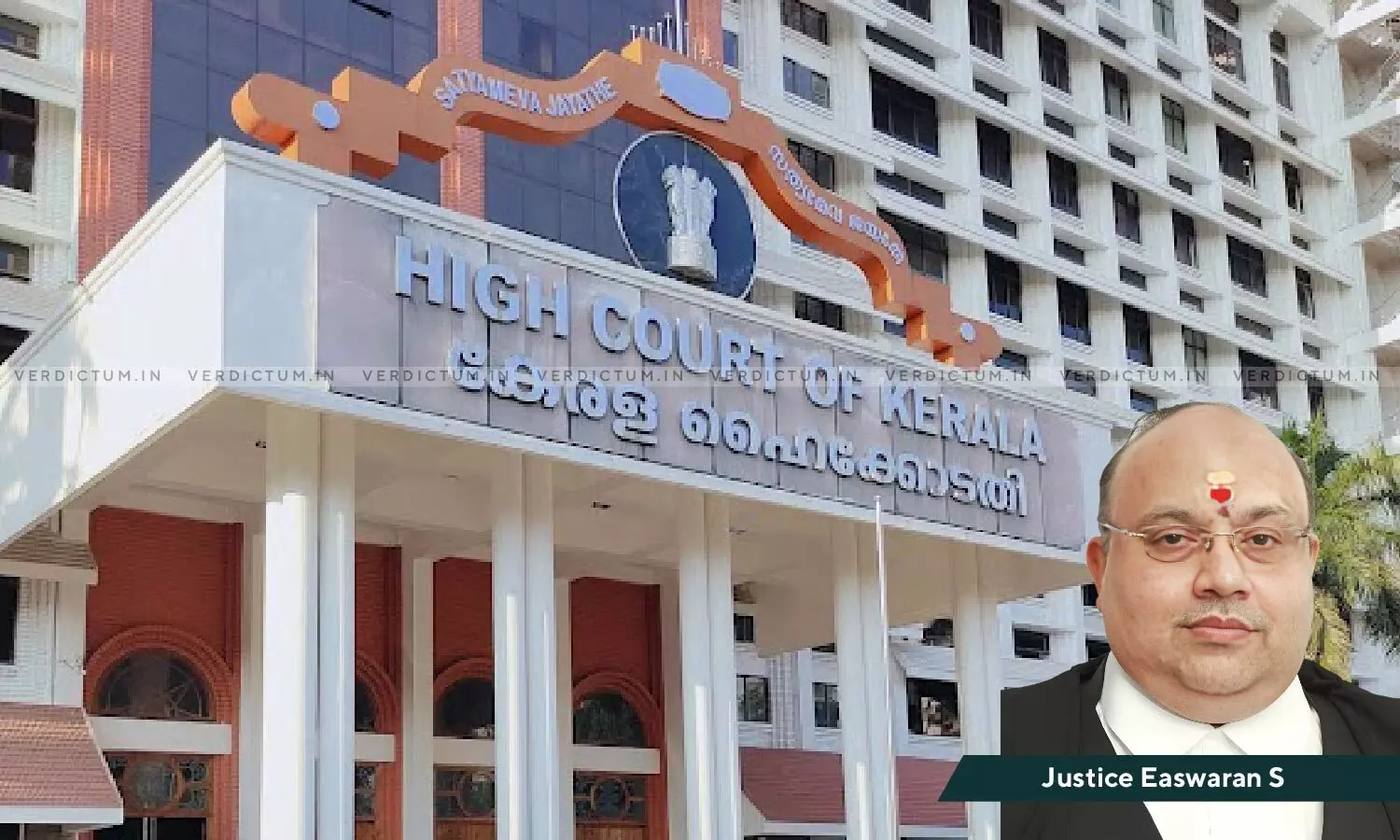
Justice Easwaran S., Kerala High Court
Preferring A Legal Heir Over Another Heir Cannot Be Termed As Unnatural Disposition In Will: Kerala High Court
 |
|The Kerala High Court considered the question whether disinheriting a legal heir in a Will is a suspicious circumstance.
The Kerala High Court observed that preferring a legal heir over another heir cannot be termed as unnatural disposition. It was also held that in the absence of any specific challenge in the suit regarding the genuineness of Will, the First Appellate Court could not have entertained such plea.
In the instant case, it was contended that the Will has unnatural disposition as the first-daughter of the testator was left out of the Will as against the second wife.
The Bench of Justice Easwaran S. observed, "It is not for the court to sit on a roving enquiry as regards the said disposition and hold that the same is unnatural. At any rate, preferring a legal heir over another heir cannot be termed as unnatural disposition."
Advocate K P Shreekumar represented the Appellants, while Advocate Alexander Joseph represented the Respondents.
Case Brief
The case of the Appellants was such that she was the second-wife of the testator, while the Respondent herein was the first child born out of the first-marriage of the testator.
The testator, while executing the Will, added a clause that the legacy would lapse on the death of second child born out of the first marriage or if she had died issueless after marriage, then that the property will revert to the second wife of the testator. However, the Respondent was left out of the Will.
The Respondent contended that she was entitled for the partition of the plaint schedule property and one third share to be allotted to her. Later, the Respondent also questioned the validity of the Will insofar as the share of second child born out of the first marriage, getting lapsed on account of her death.
Initially, the Trial Court dismissed the suit, since the Appellants were able to prove the Will in accordance with Section 68 of the Indian Evidence Act, 1872, by examining the attesting witness. On appeal by the Respondents, the First Appellate Court reversed the judgment of the Trial Court and decreed the suit finding that the execution of Will is surrounded by suspicious circumstances. Thus, the Appellants filed an appeal before the High Court.
Court's Analysis
The question of Law before the Court was: (1) Whether the First Appellate Court is justified in raising issues which do not have any foundation in the pleadings?
(2) Whether disinheriting a legal heir is, by itself, a suspicious circumstance?
(3) Whether the First Appellate Court went wrong by going suo motu into the question of genuineness of Will, when the same was not at all under challenge in the suit, the execution of which was explicitly admitted by the respondent and the cancellation which was not at all sought for by the respondent/plaintiff?
"It is pertinent to mention that the Trial Court did not entertain any such suspicious circumstances. Therefore, on appeal, when the First Appellate Court is judging whether the Trial Court was justified in dismissing the suit, could not have entertained its own observations regarding the suspicious circumstances that allegedly surrounds the Will. Therefore, it is inevitable for this Court to hold that the issues raised by the First Appellate Court did not have the foundation in the pleadings", the Court said.
Further, the Court observed that the courts are required to accept the last testament of the testator rather than disbelieving it. The Will, stated to be the intention of the last wish of the dead person, the courts cannot sit in and conduct a roving enquiry as to the circumstances surrounding the execution of Will by which one of the legal heirs were excluded. Thus, preferring a legal heir over another heir cannot be termed as unnatural disposition or suspicious circumstance.
While relying on a decision of the Supreme Court in Derek A.C. Lobo & Ors. v. Ulric M.A. Lobo (dead) by Lrs & Ors. (2023), the Kerala High Court observed that in the absence of any specific challenge in the suit regarding the genuineness of Will, the First Appellate Court could not have entertained the plea of the plaintiff.
Accordingly, the Appeal was allowed.
Cause Title: Jayashree V Sindhu Ajayan (Neutral Citation: 2025: KER: 48450)
Appearance
Respondents: ADVOACTEDS SRI.ALEXANDER JOSEPH, SMT.AKHILASREE BHASKARAN, SHRI.ANTONY NIKHIL REMELO, SHRI.AJITH SUNNY.
Click here to read/download Judgment